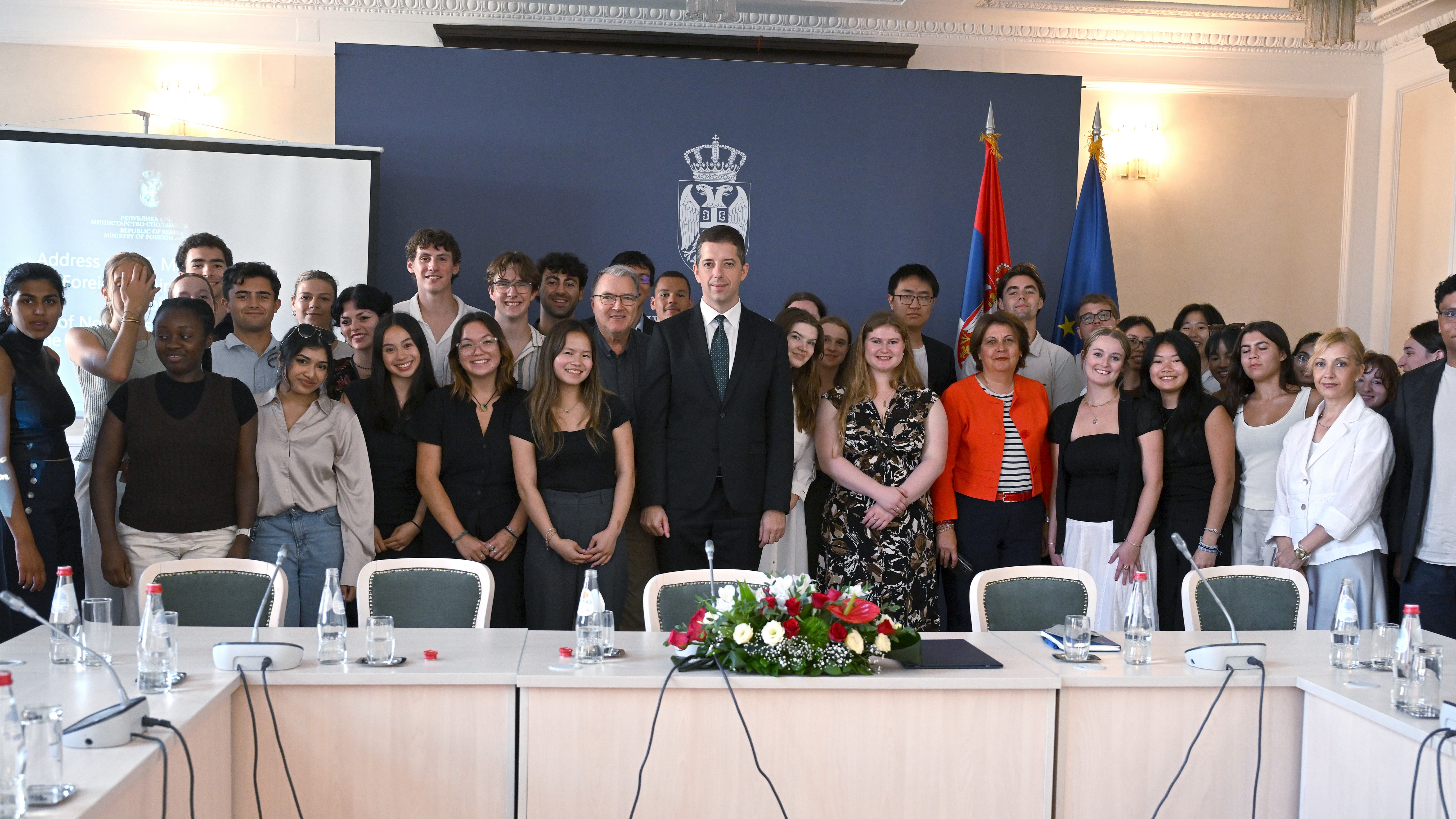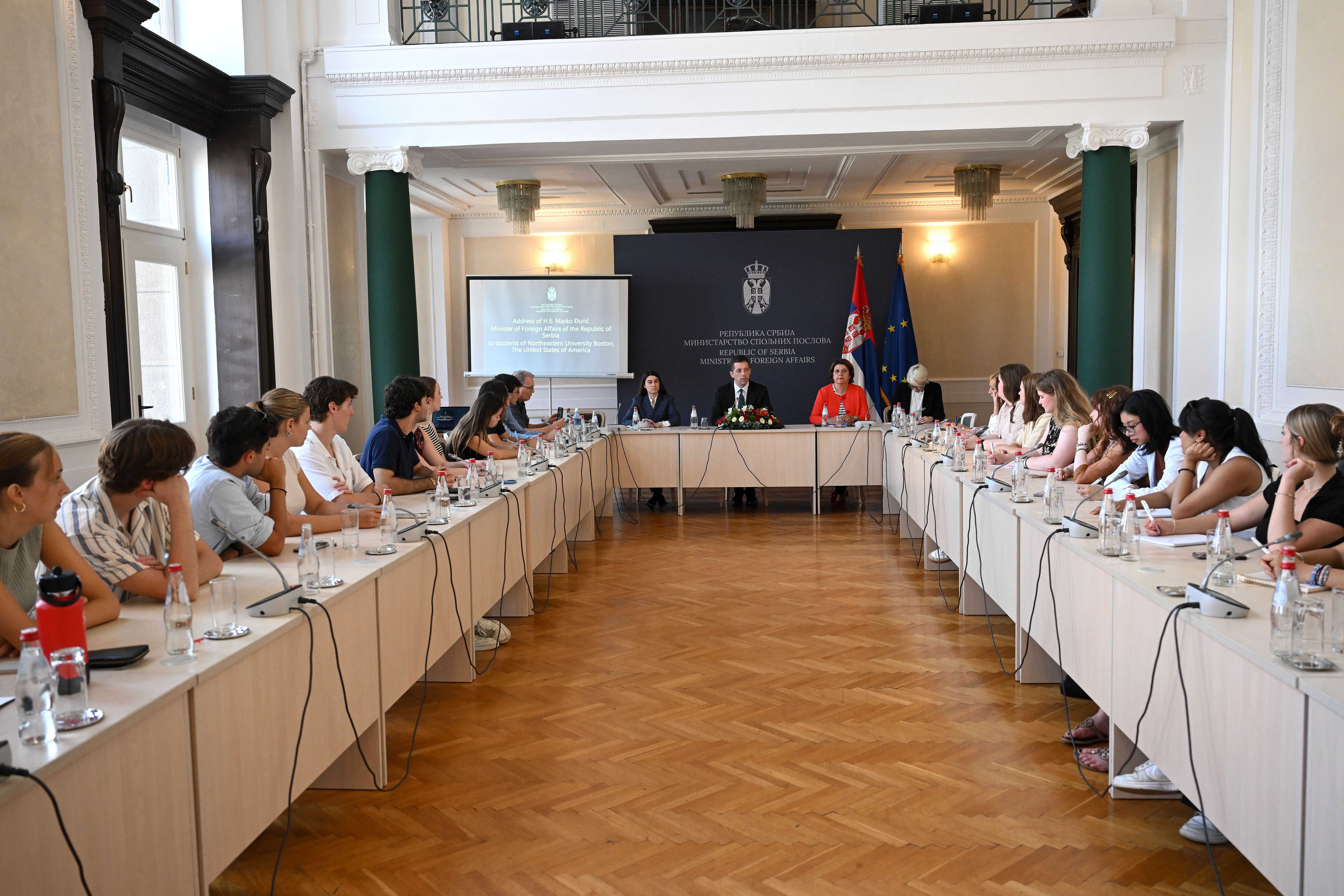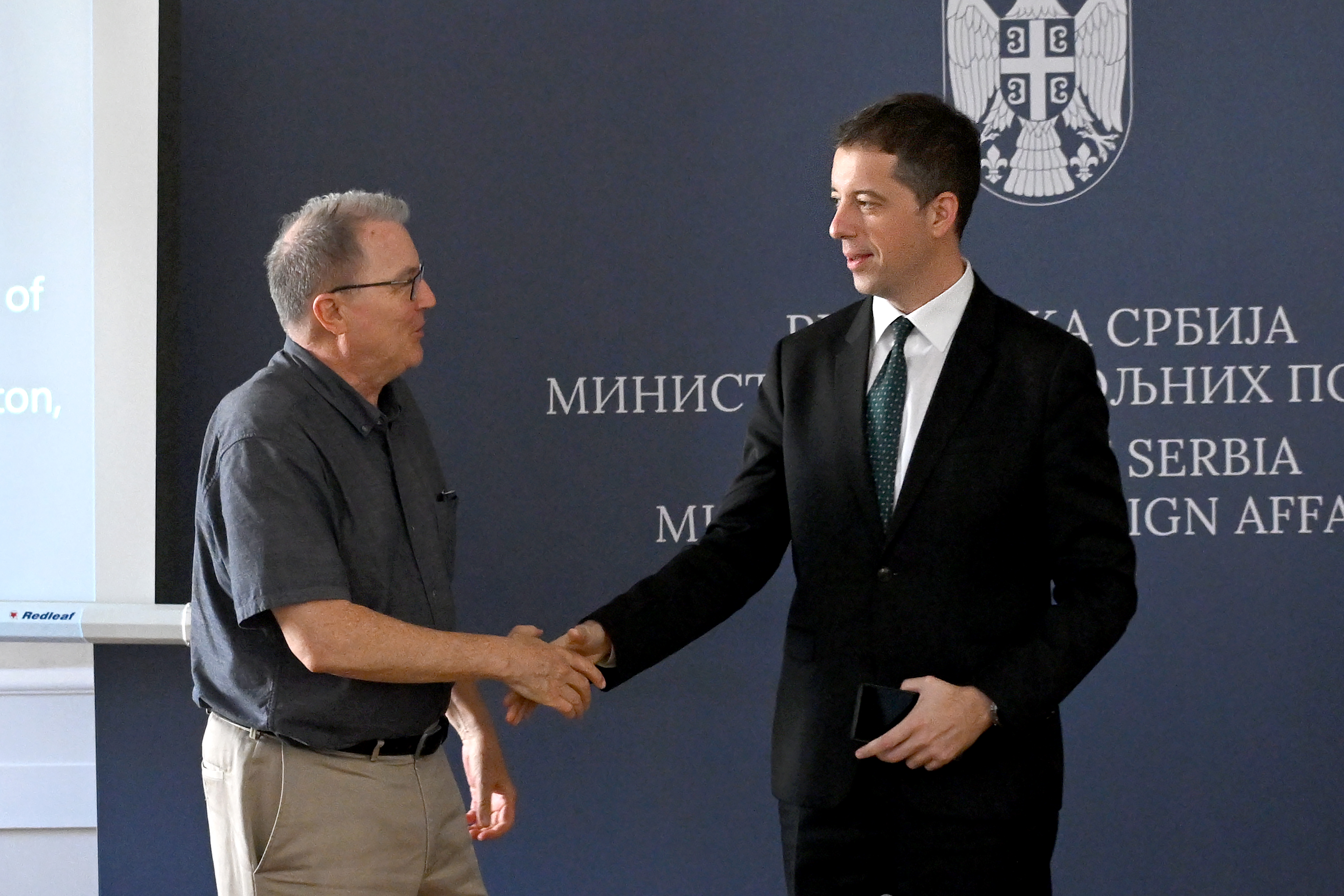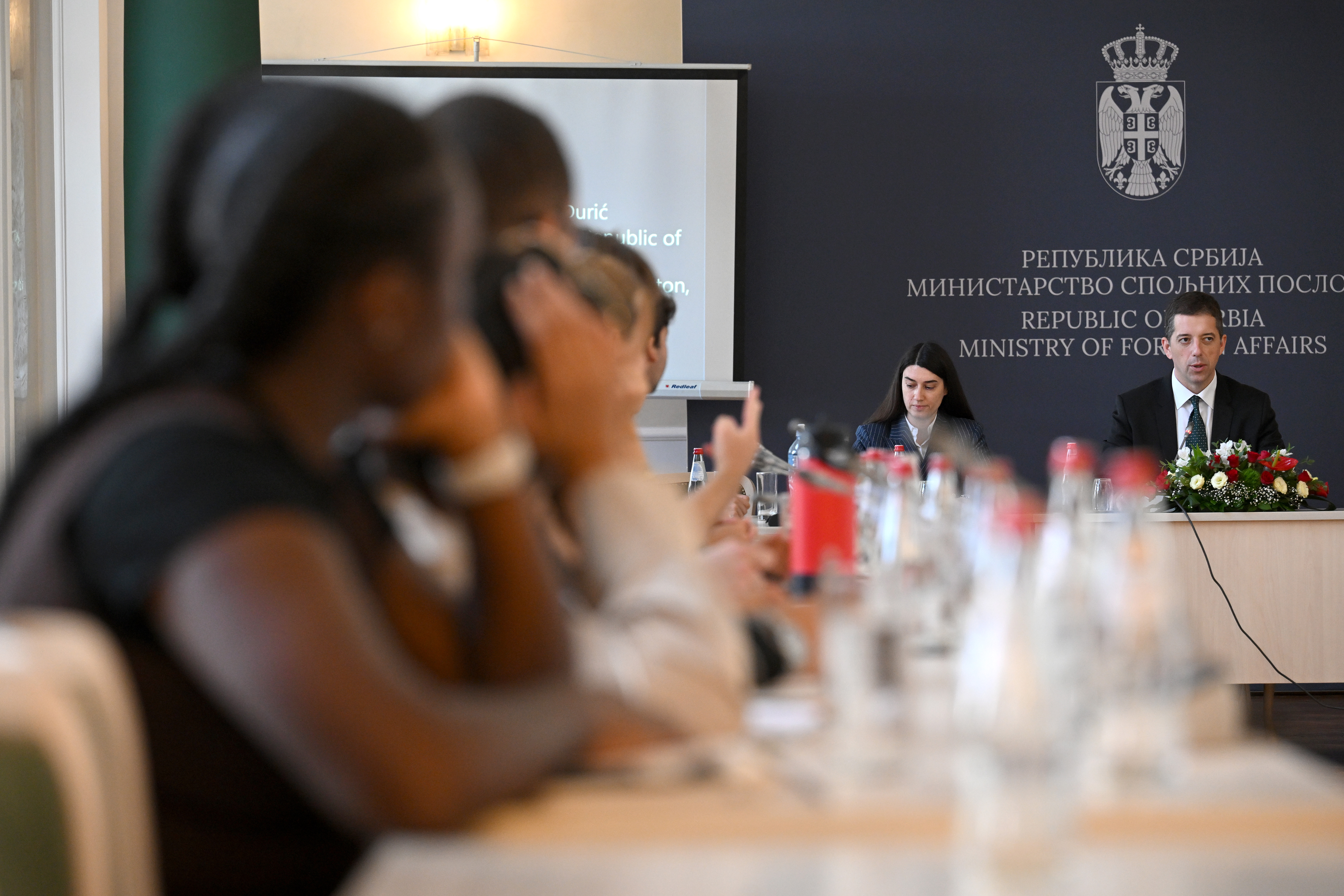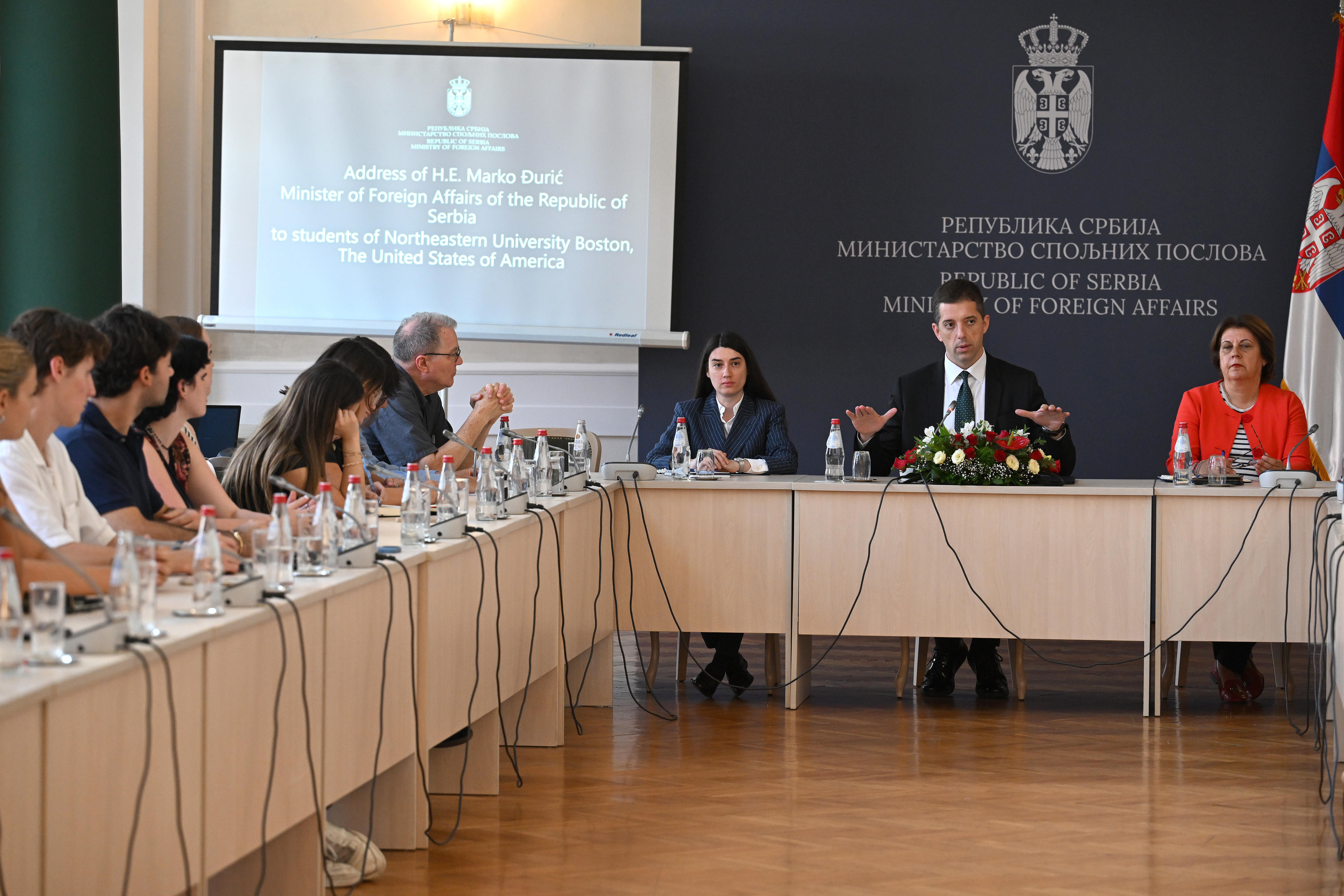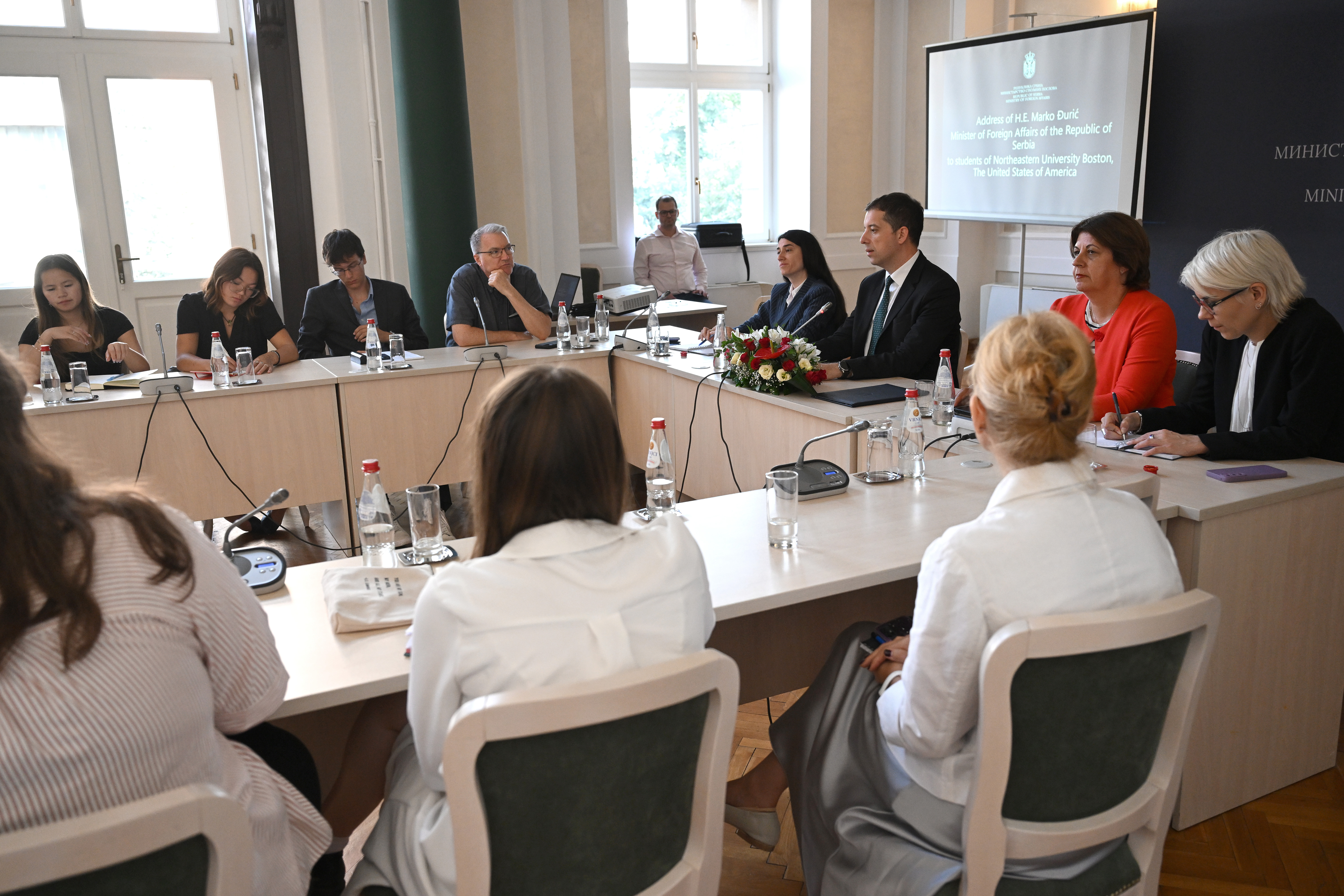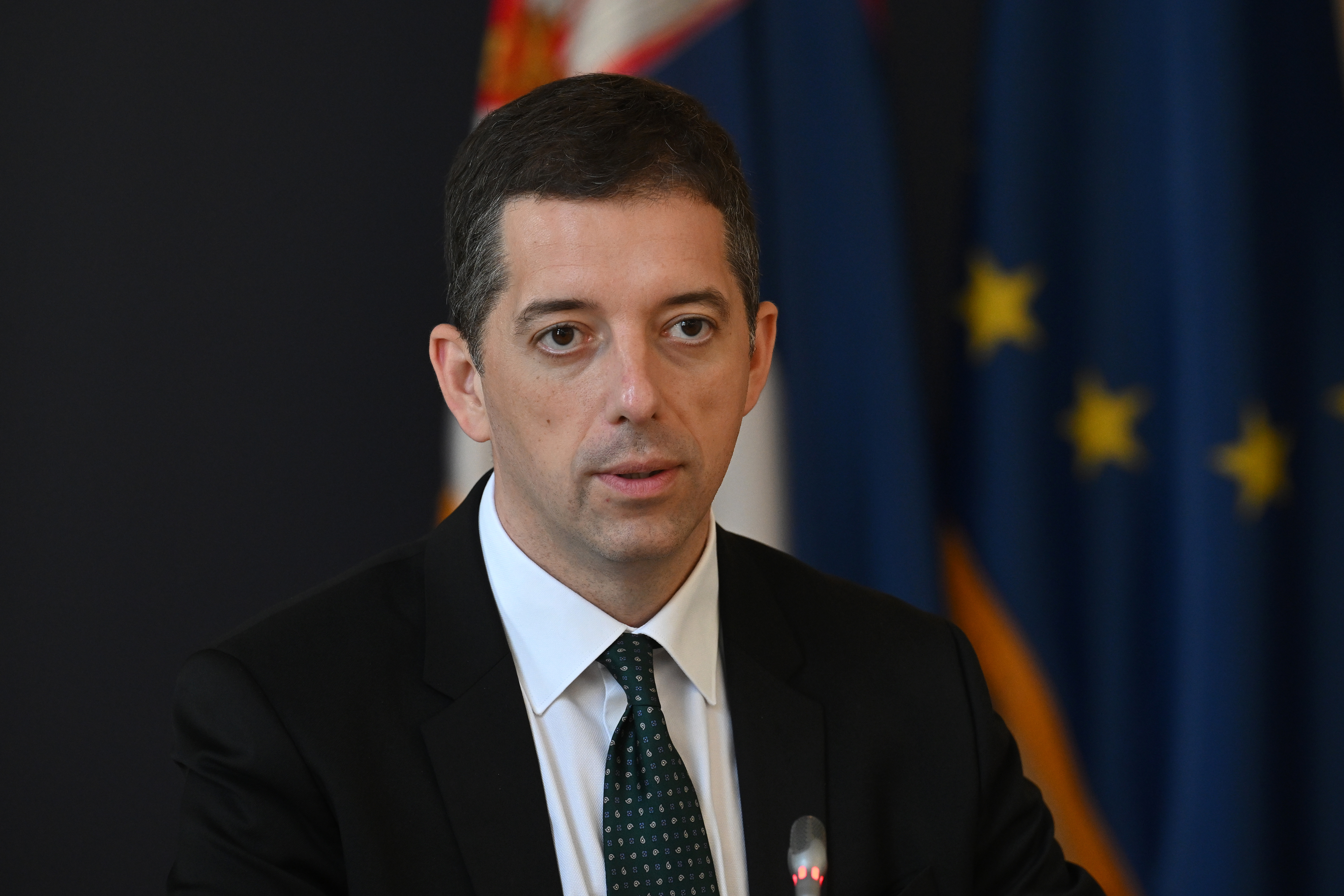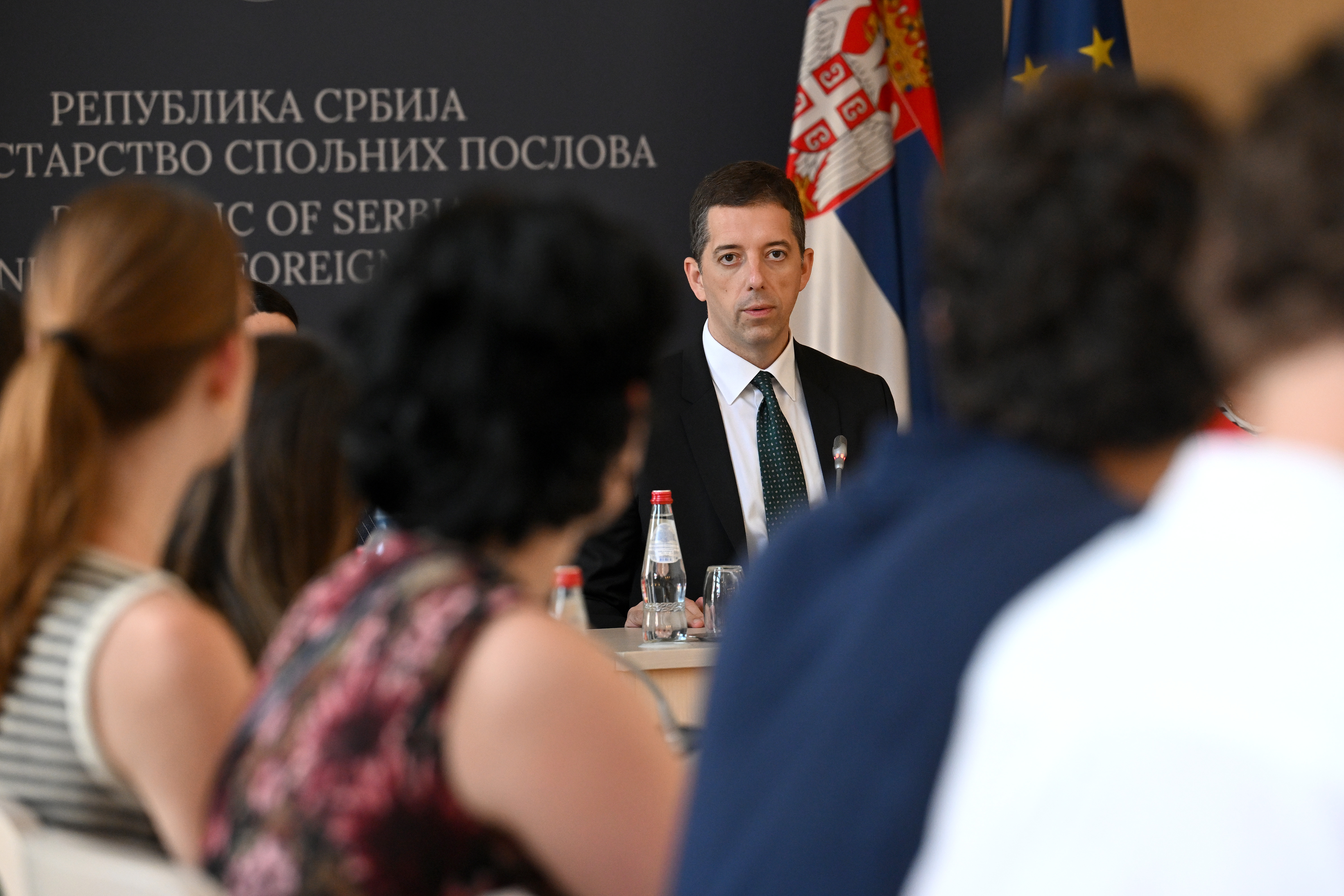Minister Djuric with students of Boston’s Northeastern University
Addressing the students, Djuric said that today’s Serbia was a country that focused on strengthening the economy and creating a good economic climate, both for domestic and foreign investors.
Although a little more than ten years ago we were forced to implement difficult macroeconomic measures, the Minister said, this allowed us to create sound foundations, owing to which today we have twice the GDP compared to that period.
"Today, Serbia is building highways, developing its infrastructure and is a leader in digital transformation in this part of Europe, which attracts about 65 percent of total foreign direct investments in the Western Balkans", the Minister emphasized.
The head of Serbian diplomacy noted that, for the sake of the progress of the entire region, it would be necessary to jointly find solutions to inherited problems from the past, with which all parties would be equally satisfied, i.e., equally dissatisfied.
Speaking about the relations with the United States, Djuric said that this year our two countries were marking the 142nd anniversary of the establishment of diplomatic relations and underlined that Serbia was willing to build strongest possible ties with the United States.
The Minister also referred to his recent stay in Washington, D.C., during which he and U.S. Secretary of State Antony Blinken discussed opening a strategic dialogue between Serbia and the United States, which would raise the relations between the two countries to a higher, enhanced level.
Bearing in mind the increasing presence of U.S. companies in Serbia, especially in the field of digitalization and the IT industry, Djuric assessed that strategic cooperation should be extended to the sphere of energy, which would bring mutual benefits.
In conclusion, the Minister wished the students a pleasant stay in Serbia and expressed the hope that they would visit our country again.
The topics of this year's "Dialogue of Civilizations" program, which has been taking place in more than 80 countries for 15 years, include the role played by European countries in the context of the migrant crisis, as well as the history and political situation in the Western Balkan region.

